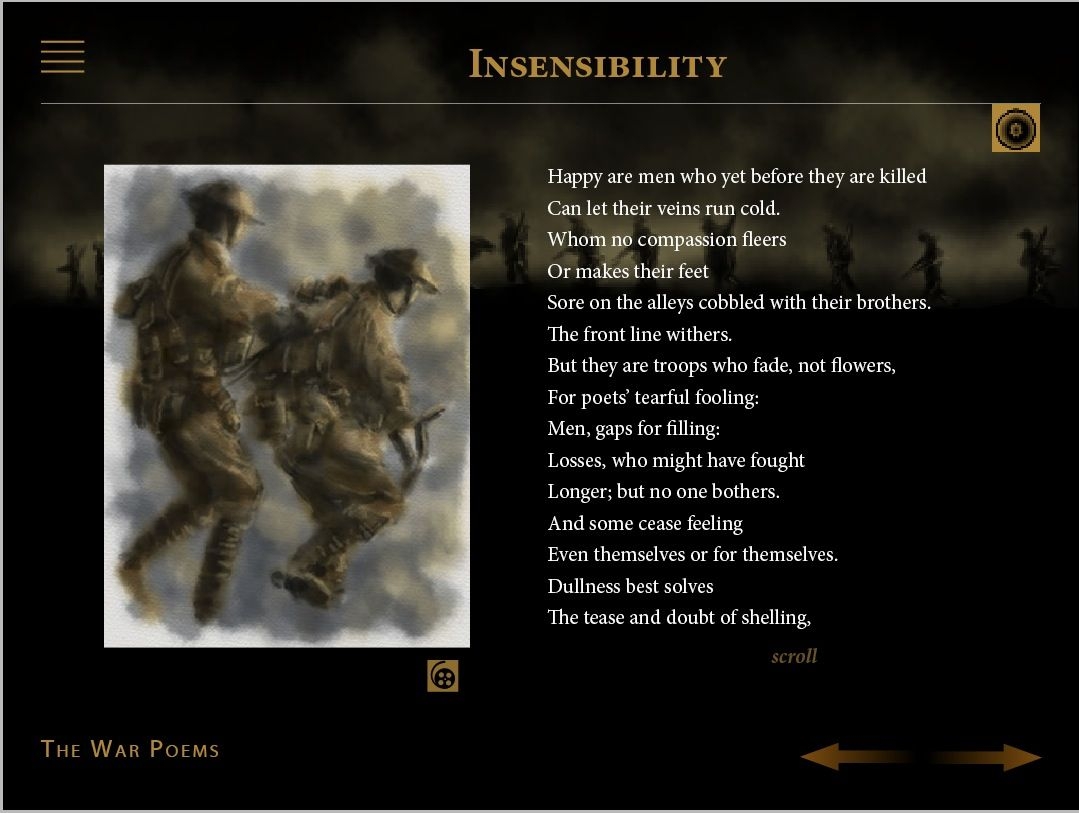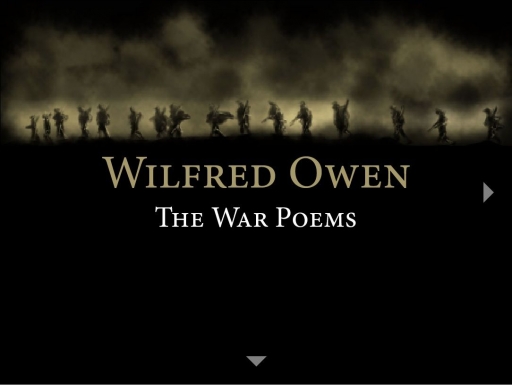Twenty first century technology is being harnessed to explore the works of the poet, Wilfred Owen, in the Centenary year of the First World War.
The potential for using an app to bring Owen’s vivid depiction of the Western Front to a wider audience has been identified by Ian Bennett, lecturer in film and media at Anglia Ruskin University in Cambridge.
Forty five of the poet’s works will be explored on the app he’s designed and built. It’s initially due to be launched for tablet devices in May 2014, with a smartphone version later.
Ian Bennett explained how the concept was born: “Owen was such a towering figure that it was felt that his work should be brought into a digital age. This was not to be just another rendering of his words but one that could more fully utilise the space afforded by a digital device, so audio, video, interactivity and imagery are included to bring another dimension to the work.”
“So for those studying the topic or whose interest has been sparked by the forthcoming commemorative events, this app will provide a rich and engaging experience, one that will ‘breathe’ additional life into an already powerful and emotive set of work.”
Wilfred Owen, a poet acclaimed for the power and poignancy of his writing, was killed in action at the age of 25, just one week before the Armistice in 1918. He’d returned to the Western Front after treatment for shell shock.
 All 45 poems on the app are read by women, as Ian Bennett explains: “A stance was adopted that the poems were assumed to have been sent home rather like a letter and that the first person, in all probability, to read them would be a maternal or close female figure for whom the words were acting like a window onto the young man’s world, fighting in a remote battlefield.”
All 45 poems on the app are read by women, as Ian Bennett explains: “A stance was adopted that the poems were assumed to have been sent home rather like a letter and that the first person, in all probability, to read them would be a maternal or close female figure for whom the words were acting like a window onto the young man’s world, fighting in a remote battlefield.”
The readers have been chosen from a wide variety of backgrounds, some with connections to the armed forces.
Mr Bennett says the reaction has been very positive: “All of the recording sessions produced the same effect; those participating and those listening were all visibly and audibly moved. The female voice really introduced another tangible dynamic to the words.”
Each of the poems is accompanied by an illustration reflecting its tone, as well as expert commentary on film from academic specialists in the literature of the Great War.
Those taking part include Dr Jane Potter, from Oxford Brookes University, who’s Editor of the Wilfred Owen Association’s Journal; Dr Kate Kennedy, of Girton College, Cambridge; and Dr Santanu Das, from King’s College, London.
The illustrations are the work of Ian Bennett himself, as he told Centenary News: “I’ve trained as an illustrator. I’ve got a whole range of styles that I use so it doesn’t look as if the same person has done every single one. They give a visual dynamic to the scene.”
Further plans include weaving newly-composed music in and around the words of some of the poems. Mr Bennett, who’s spent a year developing the app, is also working on a radio docudrama.
The project has the support of the Wilfred Owen Association and the poet’s nephew, Peter Owen.
In his introduction to the app, Peter Owen writes: “What would Wilfred have thought of his appreciation of his life and poetry? Wilfred would, I feel, be basking in all the attention and adulation his poetry now receives throughout the world.
“As we know his great concern was to be recognised by his poetry peers. Now Wilfred is simply recognised for his poetry.”
Source: Ian Bennett, Anglia Ruskin University, Cambridge
Images courtesy of Ian Bennett
Posted by: Peter Alhadeff, Centenary News
